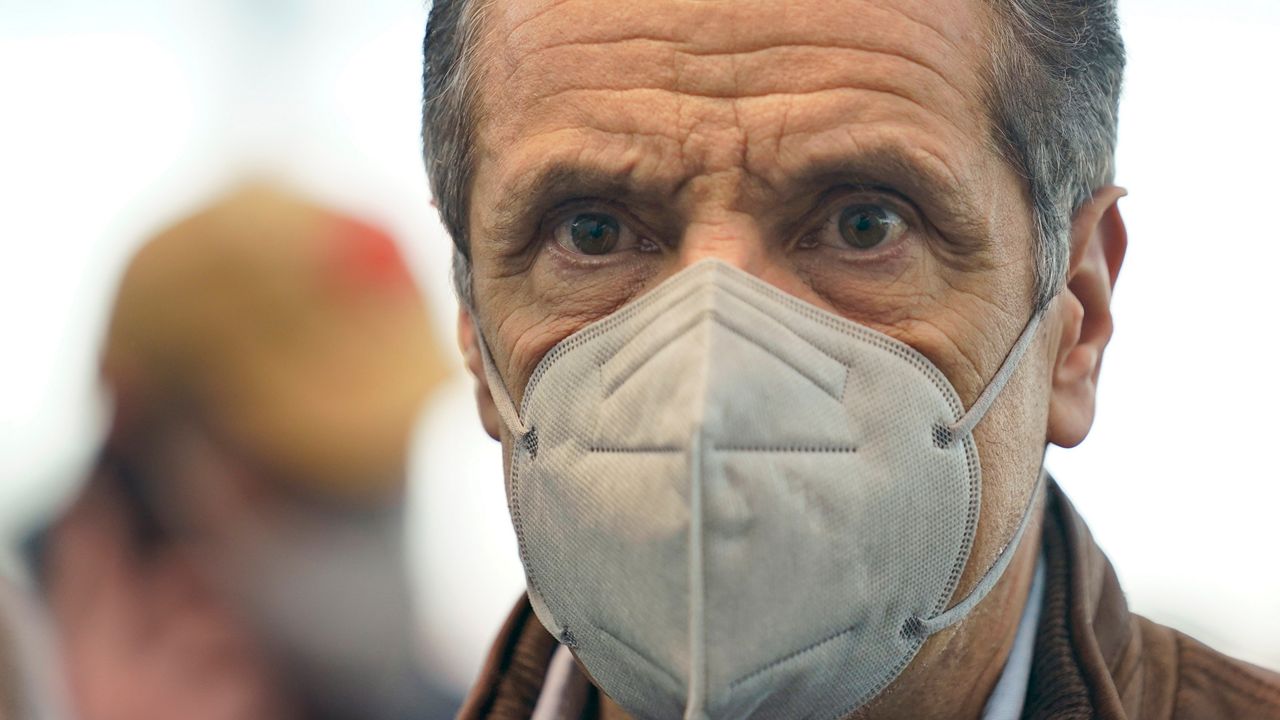Seven years ago, a Harvard University study linked the geographic isolation of state capitols to political corruption. The thinking went like this: Placing the seat of state governments outside of large metropolitian areas enabled more graft, more fraud and more wrongdoing thanks to less scrutiny.
Albany, though placed in a state with the media capital world, can easily fit that bill. And as Gov. Andrew Cuomo is fighting to remain in office amid mounting scandal and controversy, he has opted to leave town to highlight a vaccination effort in key areas of the state.
Over the last week, Cuomo has appeared at the State Fairgrounds in Syracuse, the Javits Center in Manhattan and at Old Westbury on Long Island to tout mass vaccination locations. The events are closed to the press.
His appearances come as Cuomo has been accused of sexual harassment or inappropriate behavior by seven women. His administration is also facing scrutiny for how the state reported nursing home deaths during the COVID-19 pandemic, which is now part of a federal investigation.
The Democratic-led Assembly is launching an impeachment investigation. Dozens of Democratic state lawmakers have called for his resignation. The resignation calls were joined by nearly all of the state's congressional delegation, including Senate Majority Leader Charles Schumer.
And yet, despite this seeming political isolation, Cuomo is retaining the support of labor households, Black voters, New York City residents and Democrats overall, according to a Siena College poll released this morning.
Cuomo is often seen as the ultimate political insider, adept at arm twisting and flattering when it suits him.
But if Cuomo is losing the "inside" game at a state Capitol building left largely vacant because of the pandemic, Cuomo for now is winning the "outside" game with voters.
To be sure, the trend does not look good for Cuomo. Poll after poll has shown his numbers sliding. The good will and approval ratings won during the early days of the COVID briefings has now evaporated. Still, the final blow or critical mass that would lead to his ejection from office -- voluntarily or otherwise -- is yet to land.
In 2018, Cuomo faced a primary challenge to his left by Cynthia Nixon, a public education advocate and actor. Cuomo, better funded, ultimately won in a high-turnout election.
And while the comparisons between 2018 and 2021 are decidedly different -- Cuomo not being bogged down in scandal being one of the salient differences -- there are potential parallels. Then, like now, Cuomo retained the support from a loyal core of voters. Then, like now, lawmakers fed up with the governor publicly said they wanted him gone.
Eyeballs audibly rolled last Friday when Cuomo -- a three-term governor, former state attorney general, former Housing secretary, son of a three-term governor -- said he wasn't part of a political club and proud of it.
In some respects, Cuomo has found himself the outsider with the state Legislature now. The state Capitol has long had a reputation for being an old boys' club, and women who have worked in the halls here have quickly noted the pervasive sense of misogyny is seemingly omnipresent.
But the state Legislature has changed in the 10 years Cuomo has been governor. Some of the newer lawmakers were still in high school when his signature accomplishment, the legalization of same-sex marriage, was made a reality.
The Legislature is more racially and gender diverse. The governor's peon against "cancel culture" on Friday likely did not resonate much with these elected officials.
Cuomo nearly every year has found a way to thread the policy needle with the Legislature, which now has Democratic supermajorities in each chamber.
Many people have stood up and said they've been harassed or abused or made to feel small by the governor. Now, he's counting on the vast majority of New Yorkers who have never gotten that phone call.


